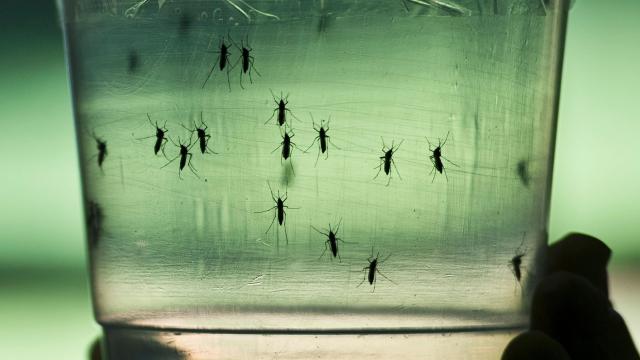A dangerous viral disease transmitted by mosquitoes has seemingly landed in Arizona. Earlier this week, health officials reported that a Maricopa County resident recently contracted dengue, while routine surveillance has found traces of the dengue virus in at least one nearby mosquito population. These discoveries suggest that the infection could be spreading locally in the state for the first time, though the investigation is still ongoing.
Maricopa County Department of Public Health (MCDPH) officials announced the human case of dengue on Monday, though no other details about the patient were provided. They also reported that the Maricopa County Environmental Services Department had detected the virus last month in samples taken from a mosquito trap in a neighbourhood of the county. Though there have been cases of dengue reported in Arizona before, they’ve been found in people who likely caught it while recently travelling to countries where the disease is endemic. But given the surveillance data, officials say, it’s possible that this is the first locally transmitted case of dengue to be reported in the county and the state as a whole.
“While previous dengue cases in Maricopa County have been related to travel to countries where dengue commonly occurs, it is important to understand if others could have been exposed or if this is an isolated incident,” said Nick Staab, medical epidemiologist, in a statement released by the MCDPH. “This is in addition to our routine investigations of anyone suspected to have dengue or other mosquito-borne diseases.”
Dengue is spread by bites from infected mosquitoes. Most infected people will experience no illness, but about one in every four will develop flu-like symptoms, according to the Centres for Disease Control and Prevention. About one in every 20 people will develop severe dengue, which can lead to life-threatening complications like internal bleeding and shock. There are four major serotypes of the virus, and surviving infection from one type does not provide immunity to the others. In fact, it actually raises the risk of severe dengue should you ever catch another type of the virus.
Though dengue is most common in the hottest and most humid areas of the world, it’s become remarkably widespread in recent decades, with the virus now believed to be endemic in over 100 countries, according to the World Health Organisation. Many experts fear that climate change will allow dengue and similar viruses to become a local problem in previously unaffected parts of the world, like much of Europe and the United States. Notably, two of the best known vectors of dengue, Aedes aegypti and Aedes albopictus mosquitoes, can now be found throughout much of the Southern and Eastern U.S. during their peak seasons, though it’s still not clear whether these populations could sustain the widespread local transmission of dengue and other viruses yet.
For the time being, Maricopa officials are planning to go door to door in the area, armed with mosquito prevention kits and tests that should be able to detect whether any residents have been infected with dengue in the past several months.
